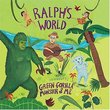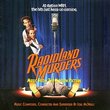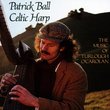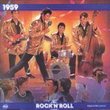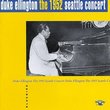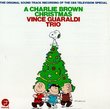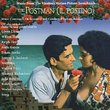| All Artists: Giacomo Puccini, Herbert von Karajan, La Scala Theater Orchestra, Enrico Campi, Lucia Danieli, Luisa Villa, Maria Callas, Mario Borriello, Mario Carlin, Nicolai Gedda, Plinio Clabassi, Renato Ercolani Title: Puccini: Madama Butterfly (complete opera) with Maria Callas, Lucia Danieli, Nicolai Gedda, Herbert von Karajan, Chorus & Orchestra of La Scala, Milan Members Wishing: 0 Total Copies: 0 Label: EMI Classics Release Date: 8/19/1997 Genre: Classical Styles: Opera & Classical Vocal, Historical Periods, Modern, 20th, & 21st Century Number of Discs: 2 SwapaCD Credits: 2 UPCs: 724355629821, 724355629852 |
Search - Giacomo Puccini, Herbert von Karajan, La Scala Theater Orchestra :: Puccini: Madama Butterfly (complete opera) with Maria Callas, Lucia Danieli, Nicolai Gedda, Herbert von Karajan, Chorus & Orchestra of La Scala, Milan
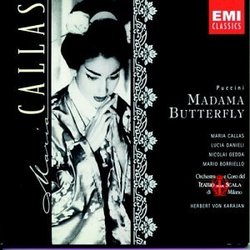 | Giacomo Puccini, Herbert von Karajan, La Scala Theater Orchestra Puccini: Madama Butterfly (complete opera) with Maria Callas, Lucia Danieli, Nicolai Gedda, Herbert von Karajan, Chorus & Orchestra of La Scala, Milan Genre: Classical
|
Larger Image |
CD DetailsSimilarly Requested CDs
|
CD ReviewsCallas: Love her or hate her. Marmez1@aol.com | Los Angeles, CA USA | 02/06/2000 (5 out of 5 stars) "It is clear from the customer reviews that Maria Callas is controversial. Even at the height of her career fans either loved her voice or hated it. I confess that I am a Callas fan, but I will concede that she did not have the most beautiful voice in the world. For voice, the Tebaldi fans were right. Same for Sutherland, whose diction might have needed improvement, but whose voice, especially in her prime, was magnificent. I love those two singers also. But when it came to understanding the depth of a character, and putting that understanding into the interpretation, Callas was without peer in her era. Perhaps only Rosa Ponselle was in her company. (Don't get me wrong. I think there were many fabulous sopranos in the twentieth century, from Galli-Curci and Farrar, through Milanov, to Schwarzkopf and de los Angeles.) Still, Callas was special.Consider for example, how differently she sings certain similar roles. Violetta, Mimi, Cho-Cho-San, and Carmen are all within six or seven years of each other. Yet Callas sings each of them so differently that you get the feeling that Cho-Cho-San is a vulnerable fifteen year old, Mimi a romantic nineteen year old, Violetta a sophisticated twenty year old, and Carmen a cunning and passionate twenty-one year old. She does this by vocal tone, by subtle hesitations when the text calls for it, and by expression. This is the sort of thing that some listeners are drawn to, while others are repelled. As for this performance, Callas is fortunate to have had the young Karajan conducting. As time went on, he became more and more full of himself. But in the 1950's Karajan made some outstanding opera recordings. Another stellar performer is the very musical tenor, Nicolai Gedda. The rest of the cast is not famous, but they do a good supporting job. Still, the star is Callas herself. You either by her understanding of the main character or you do not. For those who don't like Callas, there are several other fine recordings to consider. Renato Scotto and Carlo Bergonzi have a great recording with Barbirolli, de los Angeles and Bjorling on EMI from 1960, and a later Karajan version with Freni and Pavarotti from the mid-seventies. Personally, I favor the Callas and the Scotto, though I also have a special fondness for Bjorling and de los Angeles. But Callas is my number one choice for Butterfly." A study in dignified heartbreak Marmez1@aol.com | 08/15/1999 (5 out of 5 stars) "Like the other reviewers who have weighed in, I was amazed that the majestic Maria Callas could create such a moving, overpoweringly effective "little Butterfly". What demands this opera places on the soprano: the evolution of a fifteen-year-old child to a 17 (or is it 18?) year-old WOMAN wise to the ways of the world, broken by the impending loss of her child, yet broken while retaining enormous dignity? Not easy, either, singing out over the Puccini orchestration in the last act...You could probably find a more beautiful rendition of the love duet, to be sure. But "Un bel di" shows us the etched singing---and yes, it is quite beautiful---that Maria Callas could deliver in her golden years. "Che tua madre"---we see more of the woman, more strength, more knowledge coming into her voice---wholly effective and wonderfully sung.By the last act, her last exchanges with Suzuki show us a flesh-and-blood woman, resolute, doomed, still hopeful in brief moments. By "Tu, tu, tu, piccolo iddio" her mastery is stunning in its conception: the choppy distress of the opening lines giving way to spaciousness, to legato... And how did she KNOW to find so cleanly the "internal rhyme" in the words "faccia" and "traccia", to weigh each word JUST SO? And the measured finality of her half-sung "Va, gioca, gioca", as she sends her child away to play: this is the stuff of heartbreak.Will we ever hear an artist of the stature of Maria Callas again in our lifetimes? Somehow, I hold out little hope of that. We are blessed to have these wonderful EMI sets, for her genius and, for that matter, of Herbert von Karajan (in his earlier years), of Victor de Sabata, and the ever-brilliant Tullio Serafin. Conductors of that stature have also seemed to have gone the way of all flesh. You have only to listen to the beefy heartiness of James Levine to rush right back to your older sets. This "Butterfly" is an experience that once heard, is not to be forgotten." Art and Interpretation G. Dorian | San Diego,Ca. | 08/23/2001 (5 out of 5 stars) "Is it not one of the cornerstones of "Art" that the same painting, the same play, or as in this case the same preformance can effect, and mean as many different things to as many people? I could go in to all the many reasons why this recording touches me so deeply, but I'd only be repeating what so many of you have already said. I would only like to share one thought. Say what you will about voice or interpretation, more than twenty years after her death we are still listening to, loving or hating it, and most importantly studying, discussing, and sharing our feelings about it. Only a great artist can create and sustain emotions of this leval. Butterfly certainly desrves more than one interpretation, and one is not necessarily better than another, only different. I have more than one set of this opera as I do of most, but if I had to choose, atleast right at this moment, this would be the one. It's a keeper."
|

 Track Listings (17) - Disc #1
Track Listings (17) - Disc #1